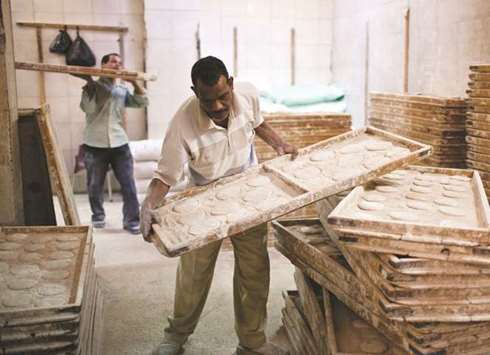The fate of a Romanian wheat cargo being reviewed for entry into Egypt could hurt trade with the world’s biggest buyer of the grain.
Egypt’s Public Prosecution Office is looking into the case after the quarantine office stopped a 63,000-metric-tonne shipment at the port of Safaga for containing poppy seeds, the Agriculture Ministry said. The cargo of Romanian wheat was shipped by trader Cerealcom Dolj, said a person familiar with the matter who asked not to be identified because the information is private.
A final rejection could revive concerns over which government body is responsible for inspecting cargoes into Egypt. Similar confusion led to traders boycotting tenders from state-run buyer, the General Authority for Supply Commodities, last year after quarantine officials stopped cargoes containing a common fungus.
Egypt in November issued a decree transferring inspections to a trade ministry body, a decision that quarantine officials have challenged.
Egyptian trade is being “thrown back into uncertainty over specifications and who’s in control of the inspection process,” Hesham Soliman, president of Alexandria-based Medstar for Trading, said on Wednesday. “Any rejection of a wheat cargo bought by GASC could again put traders in confusion and make them hesitant to participate in tenders.”
Quarantine officials refused a French wheat cargo from US trader Bunge Ltd in late 2015 because it contained the ergot fungus, a move that sparked a row over import requirements and a standoff with international traders. While GASC rules on ergot were in line with international standards, the quarantine department had adopted a zero-tolerance policy.
Poppy seeds are banned from being traded or planted in Egypt. The amount of foreign organic matter including harmful and toxic seeds in wheat shipments shouldn’t exceed 1%, GASC tender specifications show. While the amount of allowed poppy seeds, which are commonly added to bread in Europe, is not under dispute, the case has grabbed traders’ attention just a week after Egypt received a flood of offers in its latest tender.
Still, the impact on tender offers and prices should be limited, and poppy seeds won’t affect all exporters, according to Charles Clack, an analyst at Rabobank International in London.
“It’s another case which could slightly dent trader confidence, but certainly not to the extent of the ergot specifications,” Clack said by email. “It’s a much more isolated incident when compared to last year’s ergot saga.”
Vessel Wadi Tiba left Romania’s port of Constanta earlier this month and arrived in Safaga around mid-August, according to ship-tracking data on Bloomberg.
Second samples of the cargo have been taken for testing, Ismail Gaber, head of the General Organisation for Export & Import, said on Tuesday. A final decision is due soon.

Workers arrange trays of dough for baking bread in a bakery in Cairo. Egypt’s Public Prosecution Office is looking into the case after the quarantine office stopped a 63,000-metric-tonne Romanian wheat cargo shipment at the port of Safaga for containing poppy seeds, the Agriculture Ministry said.
